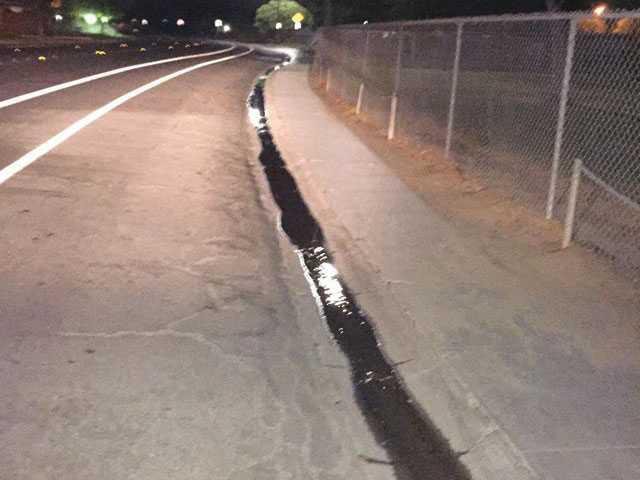Declaring a local drought emergency is not the answer to assuring Manteca has water to weather what Mayor Ben Cantu believes is a new norm for California.
Such a declaration, from Cantu’s perspective, would simply be window dressing.
He believes mandating people to reduce water “for an emergency” would give a false sense that water shortages due to lack of additional storage and the changing climate are still the exception
Instead he’d prefer a holistic approach for local water use while noting city leaders cannot increase more reservoir water storage.
It is why in getting the council to agree in mid-September to explore a request from the San Joaquin County Democratic Central Committee to establish a local committee to pursue environmental water solutions while the city declares a drought emergency, he plans to advocate for an action plan with a smorgasbord of options minus the emergency declaration.
“Declaring an emergency is not a solution,” Cantu said. “It is a Band-Aid.”
Cantu’s plan includes:
*a potential building moratorium if supplies become inadequate to meet the needs of current residents and businesses.
*taking decisive action on putting in motion a plan to use highly treated municipal wastewater for irrigating large swaths of public areas such as parks and playing field as well as general landscaping by creating a delivery network that builds upon purple place that has been installed over the years.
*proactive enforcement of existing municipal water conservation measures instead of taking action only when a citizen lodges a formal complaint
Cantu noted water conservation is not without its drawbacks.
The city’s successful effort at implementing state mandates for low-flow shower heads, low-flow toilets, and water efficient washing machines has substantially reduced per capita water consumption over the past eight years.
That has led to issues at the wastewater treatment plant. Cantu said it now needs to undergo expensive modifications to the treatment plant due to there being less water and more solids.
Cantu looks at the wastewater treatment plant as harboring the single biggest positive impact the city can make on the local water supply.
Each day the city sends more than 6 million gallons of water into the San Joaquin River that has been treated at the wastewater plant.
By tapping into that water the city for irrigation of public fields and landscaping as well as front yard and commercial landscaping as some cities do, it would significantly reduce the demand on ground and surface water.
“The water we send to the San Joaquin (that is treated at the municipal wastewater facility) is cleaner than what is in the river,” Cantu noted.
There have been at least three efforts started to move toward actual implementation of wastewater recycling by treated wastewater flowing through purple pipe for non-potable uses in the past two decades. All three efforts were simply dropped after a year or so.
Given outdoor water use accounts for roughly half of water consumption with landscaping being about 80 percent of the outdoor use, there is a significant potential to reduce the use of expensive drinking water without imposing drastic cutbacks in future years.
“The lack of water storage isn’t a city issue,” Cantu. “It really is a state issue.”
He note leadership in Sacramento is likely to use the drought to meet “self-serving needs” such as using the authority of an emergency to make water grabs.
To contact Dennis Wyatt, email dwyatt@mantecabulletin.com




